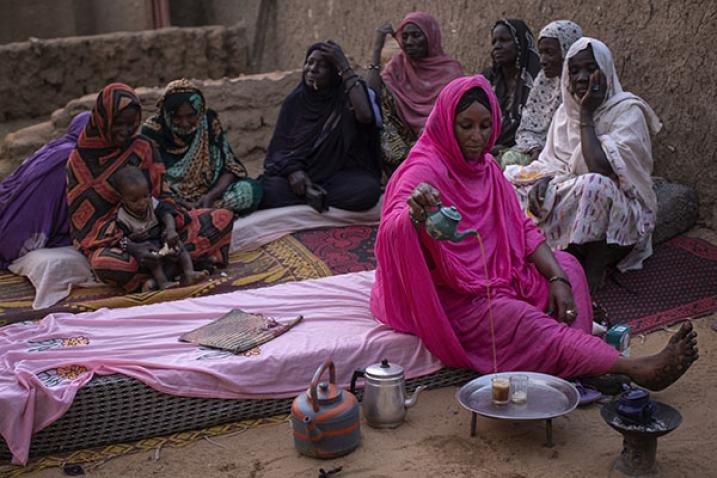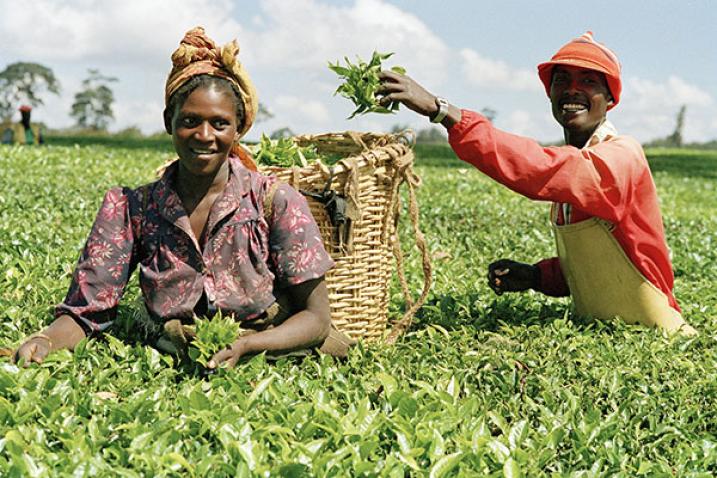Why drink tea?
Tea is a beverage made from the Camellia sinesis plant. Tea is the world’s most consumed drink, after water. It is believed that tea originated in northeast India, north Myanmar and southwest China, but the exact place where the plant first grew is not known. Tea has been with us for a long time. There is evidence that tea was consumed in China 5,000 years ago.
Tea production and processing constitutes a main source of livelihoods for millions of families in developing countries and is the main means of subsistence for millions of poor families, who live in a number of least developed countries.
The tea industry is a main source of income and export revenues for some of the poorest countries and, as a labour-intensive sector, provides jobs, especially in remote and economically disadvantaged areas. Tea can play a significant role in rural development, poverty reduction and food security in developing countries, being one of the most important cash crops.
Tea consumption can bring health benefits and wellness due to the beverage's anti-inflammatory, antioxidant and weight loss effects. It also has cultural significance in many societies.
International Tea Day
Re-emphasizing the call from the Intergovernmental Group on Tea to direct greater efforts towards expanding demand, particularly in tea-producing countries, where per capita consumption is relatively low, and supporting efforts to address the declining per capita consumption in traditional importing countries, the General Assembly decided to designate 21 May as International Tea Day.
The Day will promote and foster collective actions to implement activities in favour of the sustainable production and consumption of tea and raise awareness of its importance in fighting hunger and poverty.
Tea production and the Sustainable Development Goals
Tea production and processing contributes to the reduction of extreme poverty (Goal 1), the fight against hunger (Goal 2), the empowerment of women (Goal 5) and the sustainable use of terrestrial ecosystems (Goal 15).
Moreover, there is an urgent need to raise public awareness of the importance of tea for rural development and sustainable livelihoods and to improve the tea value chain to contribute to the 2030 Agenda for Sustainable Development.
Tea and climate change
Tea production is highly sensitive to changes in growing conditions. Tea can only be produced in narrowly defined agro-ecological conditions and, hence, in a very limited number of countries, many of which will be heavily impacted by climate change.
Changes in temperature and rainfall patterns, with more floods and droughts, are already affecting yields, tea product quality and prices, lowering incomes and threatening rural livelihoods. These climate changes are expected to intensify, calling for urgent adaptation measures. In parallel, there is a growing recognition of the need to contribute to climate change mitigation, by reducing carbon emissions from tea production and processing.
Therefore, tea-producing countries should integrate climate change challenges, both on the adaptation and mitigation front, into their national tea development strategies.
Resources
- Resolution A/RES/74/241
- Report "Current Market Situation and Medium Term Outlook" (CCP:TE 18/CRS1)
- Report "Emerging Trends in Tea Consumption"
- FAO website: International Tea Day
- Social media materials
- FAO Intergovernmental Group (IGG) on Tea
- FAO Trade and markets: Tea
- Zero Hunger Challenge
- Sustainable Development Goals
Related Observances
Watch
Tea is not only a healthy drink. Tea is central to our cultures. From China to Argentina. From India to Kenya.




